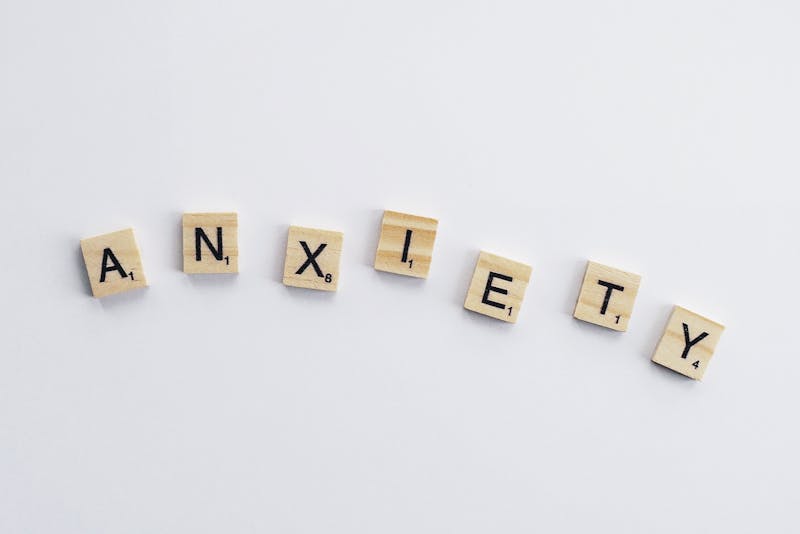Anxiety is the body’s natural response to stress, characterized by feelings of worry, nervousness, or fear. While occasional anxiety is normal, chronic or excessive anxiety can interfere with daily life and become a disorder.
Causes
- Biological Factors: Genetics, brain chemistry, hormonal imbalances.
- Psychological Factors: Trauma, negative thinking patterns, low self-esteem.
- Environmental Factors: Stressful life events, work pressure, relationship issues.
Symptoms
- Physical: Increased heart rate, sweating, trembling, dizziness, nausea.
- Emotional: Excessive worry, irritability, fear, restlessness.
- Behavioral: Avoidance of situations, difficulty concentrating, trouble sleeping.

The Science Behind
Anxiety activates the fight-or-flight response, releasing stress hormones like cortisol and adrenaline. While helpful in dangerous situations, chronic activation of this system can lead to long-term mental and physical health issues.
How it Affects Daily Life
Unmanaged anxiety can disrupt work, relationships, and personal well-being. It can cause social withdrawal, productivity decline, and even physical health problems such as high blood pressure or digestive issues.
Common Triggers
- Work stress and deadlines.
- Relationship conflicts.
- Health concerns.
- Uncertainty and fear of failure.
- Social situations and public speaking.
- Trauma or past negative experiences.
Natural Ways to Manage Anxiety
- Meditation and Mindfulness: Helps calm the mind.
- Exercise: Releases endorphins to reduce stress.
- Healthy Diet: Avoid excessive caffeine and sugar.
- Deep Breathing: Helps slow heart rate and relax muscles.
- Sleep Hygiene: Good sleep improves emotional regulation.
Medications for Anxiety – Do You Need Them?
- Selective Serotonin Reuptake Inhibitors (SSRIs): Commonly prescribed for anxiety.
- Benzodiazepines: Fast-acting but can be habit-forming.
- Natural Remedies: Herbal supplements like chamomile and valerian root.
Lifestyle Changes to Reduce Anxiety
- Establish a consistent routine.
- Limit alcohol and caffeine intake.
- Practice self-care and relaxation techniques.
- Build a strong social support system.
Anxiety in Children and Teens
Anxiety in young people can manifest as school avoidance, excessive worrying, irritability, or trouble sleeping. Parents should create a supportive environment and seek professional help if needed.
Anxiety and Social Media
Constant exposure to negative news, comparison culture, and online validation can contribute to heightened anxiety. Setting screen-time limits and curating a positive digital environment can help.
Myths and Misconceptions About Anxiety
- “Anxiety is just overthinking.” (False—It’s a real medical condition.)
- “People with anxiety should just relax.” (False—Anxiety isn’t always controllable by willpower.)
- “Medication is the only solution.” (False—Therapy and lifestyle changes are also effective.)
When to Seek Professional Help for Anxiety
Seek help if anxiety interferes with daily life, leads to panic attacks, or causes significant distress. Therapists and psychiatrists can provide effective treatment options.
Frequently Asked Questions (FAQs)
1. Can anxiety go away on its own?
Mild anxiety may improve with self-care, but chronic anxiety often requires professional help.
2. Is anxiety a mental illness?
Yes, chronic anxiety is classified as a mental health disorder.
3. Can diet help with anxiety?
Yes, reducing caffeine, sugar, and processed foods while increasing whole foods can support mental health.
4. How long does anxiety last?
It varies—some episodes are short-lived, while chronic anxiety can persist for years without treatment.
5. Can exercise help with anxiety?
Absolutely! Regular physical activity helps regulate stress hormones and boosts mood.
6. What are some quick ways to calm anxiety?
Try deep breathing, progressive muscle relaxation, or listening to calming music.
Conclusion – Overcoming Anxiety for a Better Life
Anxiety is a common but manageable condition. By understanding its causes, triggers, and treatment options, individuals can regain control over their mental health and lead a balanced, fulfilling life.
